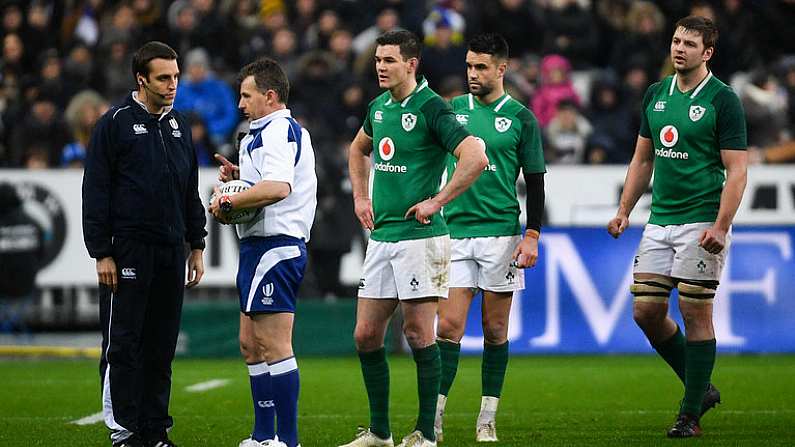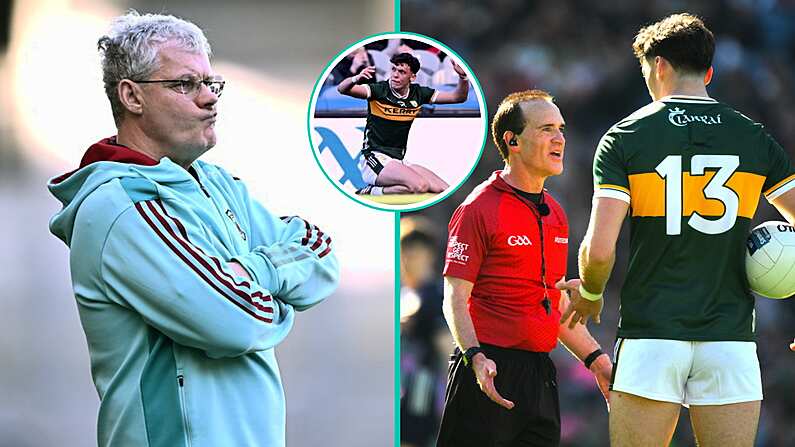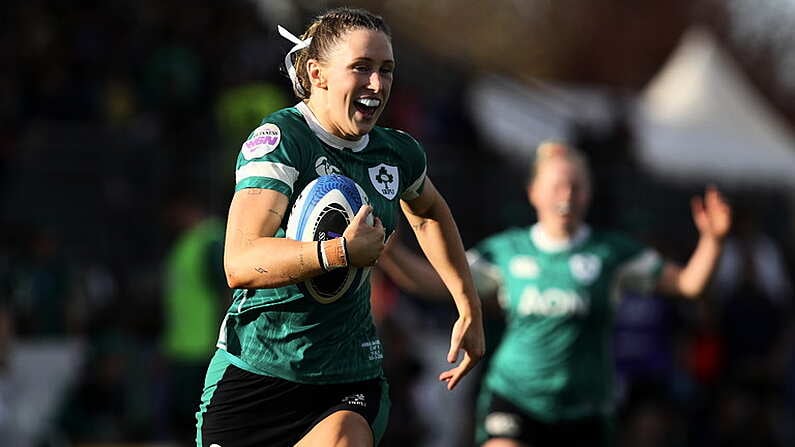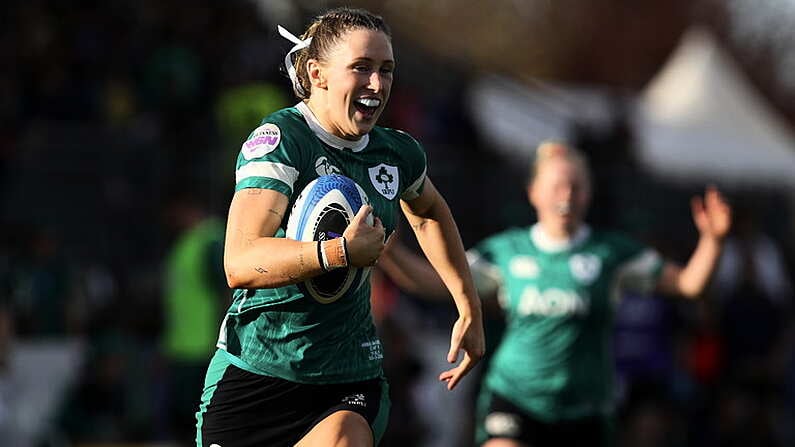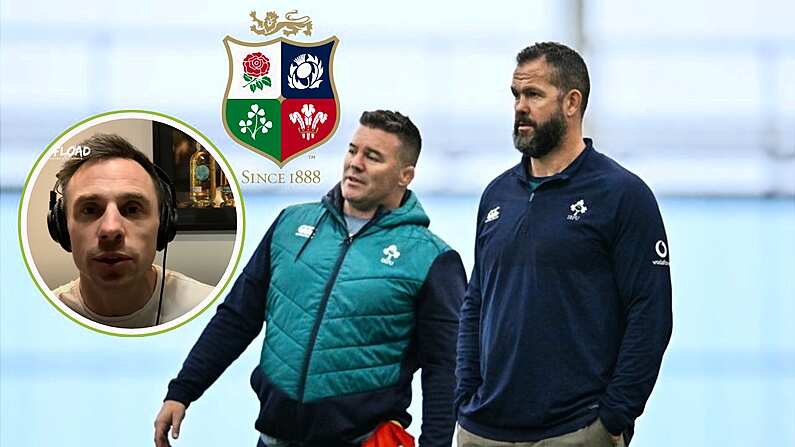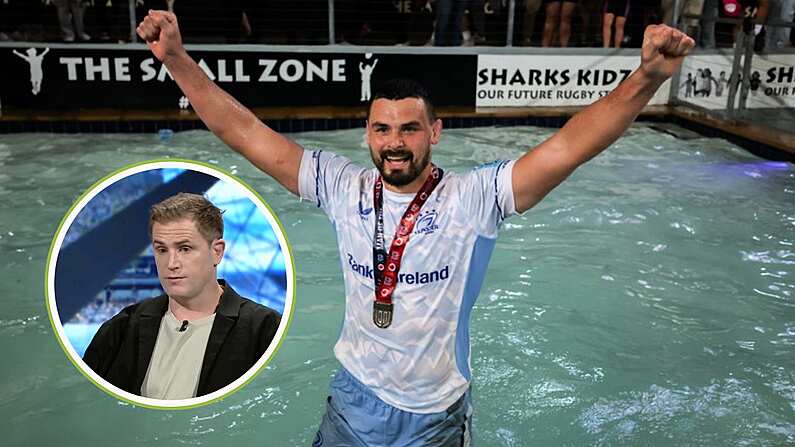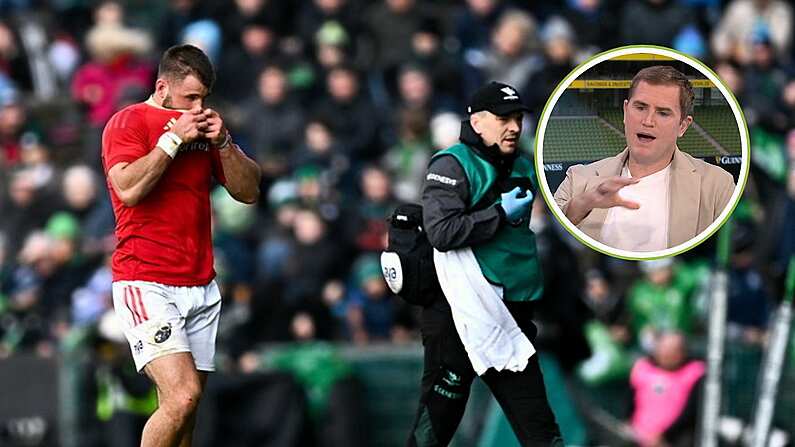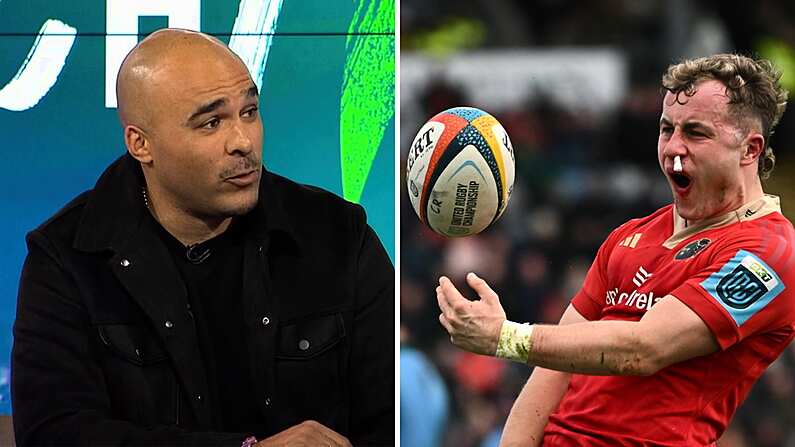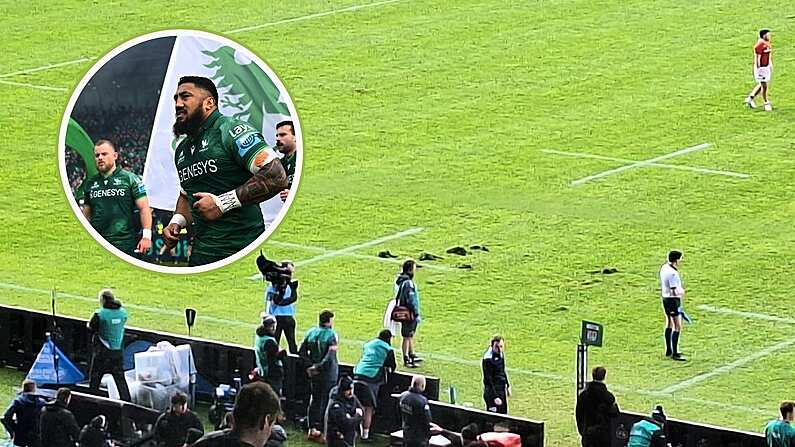There was surprise earlier this week when World Rugby called and a spade a spade. They admitted that TMO, Glenn Newman, made the wrong call in not awarding Gareth Anscombe's clear try at Twickenham on Saturday night, a decision that arguably cost Wales the game. A straight forward case yes, but nonetheless, it was surprising to hear an organisation take responsibility for a mistake.
Last night, things went back to normal. A Six Nations independent HIA Review Panel ruled no foul play in the match doctor's decision to insist on HIA checks for French duo Matthieu Jalibert and Antoine Dupont, despite no clear head injury, and obvious leg injuries which meant neither player was able to return to the game.
The case of Dupont in particular caused uproar after the game, even despite Johnny Sexton's dramatic winning drop goal which rendered the decision irrelevant from a result point of view.
Dupont endured a severe knee injury, which would later be confirmed to rule him out for the rest of the season, and despite his obvious pain, and being helped from the field unable to walk, his HIA designation meant that starting scrum half Maxime Machenaud was able to return to the field of play for the crucial final minutes of the game.
Just because we won with an INCREDIBLE 42 METER drop goal that HIA decision shouldn’t get swept under the carpet. It was nothing short of a disgrace!!!
— Brian O'Driscoll (@BrianODriscoll) February 3, 2018
Just stubbed my toe kicking the bar after the match and have told the wife I need a HIA before I go home....does that count!?! https://t.co/dJifj9UTrY
— Rob Henderson (@robhendo13) February 3, 2018
Last night, Six Nations Rugby released a statement explaining the finding of their independent review panel.
In respect of the incident involving Jalibert, the HIA Review Panel concluded:
- the player had not suffered a concussion during the relevant incident and therefore could (if not for an injury that he had sustained to his knee) have returned to the pitch after the HIA;
- the decision to call for an HIA was not made by anyone who was formally connected with the French team, rather it was made by the match day doctor, supported by the video doctor, and was based on the player having been on the ground (motionless) for a period of time; and
- while there was some debate about whether or not it had been appropriate for the match day doctor to call for an HIA in the circumstances, there was no evidence of anyone within the FFR seeking to gain a competitive advantage.
And in respect of the incident involving Dupont, the findings were as follows:
the player had not suffered a concussion during the relevant incident and therefore could (if not for an injury that he had sustained to his knee and the match having come to an end) have returned to the pitch after the HIA;
the decision to call for an HIA was not made by anyone who was formally connected with the French team, rather it was made by the match day doctor, supported by the video doctor, and was based on the match officials’ earlier indication that an HIA was required;
although the match day doctor and the video doctor should not have simply accepted the match officials’ indication that an HIA was required, it was understandable that they called for an HIA in those circumstances; and
again, there was no evidence of anyone within the FFR seeking to gain a competitive advantage.
Six Nations Rugby also stated they would be working with World Rugby to clarify these issues for the future. There was at least an acknowledgment in the statement that issues do exist, but until a clear ruling is made, it appears this is a rule rife for exploitation.
While safety of the players is paramount, and maybe this is a small price to pay for that, there needs to be clearer guidelines given to referees and doctors.
In the case of Dupont, it's still unclear as to how the safety of an injured player unable to continue regardless of concussion is in any way affected by allowing Machenaud to return.
Despite the findings of the panel that there was no evidence anyone from the FFR was seeking to gain a competitive advantage, it is crystal clear they knew Dupont could not continue because of his knee injury and brought Machenaud back for the HIA anyway. This is an exploitation of the rules, and is an obvious loophole World Rugby can look at.
Maybe the French aren't responsible for this loophole, and maybe they broke no rules as such, but this isn't good enough.
Rugby needs to get concussion issues under control for the very survival of the game. The current HIA rules are, even now, insufficient. It is the most important issue the game will ever face.
Whenever these rules are exploited for sportsmanship, they are massively undermined. When the opposition players, the referees, and the rugby watching public see this, they believe less in the validity of the head injury protocol. As important as strengthening the protection of players by ensuring no head injury is left unrecognised, World Rugby needs to ensure that the laws are protected from gamesmanship and undermining.
As naive as it may sound about a professional sport, head injury protocol needs to exist beyond the game.

